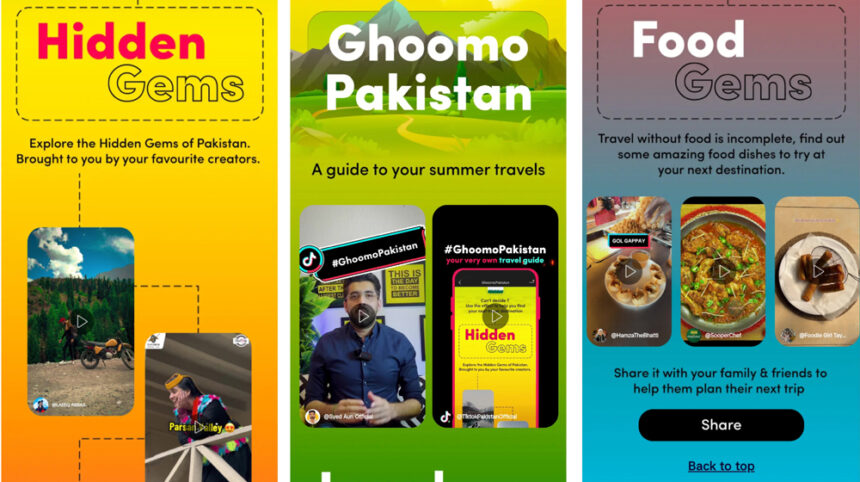The #GhoomoPakistan campaign on TikTok, which aimed to highlight the hidden gems, culture, and landscapes of Pakistan, has successfully concluded after garnering an incredible 2.3 billion video views in just two months. World Tourism Day and this milestone reinforce TikTok’s significance in promoting Pakistan as a tourism destination worldwide.
The main goals of the campaign were to promote ethical travel and dispel misconceptions about Pakistan’s potential as a top tourist destination. It sought to promote Pakistan’s rich beauty, history, culture, and art while highlighting less-traveled tourist locations.
By collaborating with four well-known creators who traveled to Pakistan’s alluring regions, TikTok was able to capitalize on local talent. Zenith, or “The Motorbike Girl,” traveled to Islamabad, Neelum Valley, and Arang Kel while Rana Hamza Saif explored Islamabad, Skardu, and Hunza. Photographing beautiful vistas, Zernab Shastri and Minahil Malik traveled to Swat, Malam Jabba, and Kalam.
The portal also worked with more than 15 local travel content producers and showcased work from more than 100 creators, highlighting Pakistan’s potential as a popular tourism destination. These artists documented their travels across Pakistan, revealing unusual routes, undiscovered attractions, regional restaurants, and endearing encounters with the locals.
TikTok unveiled a dedicated #GhoomoPakistan travel center with helpful information on beautiful routes, travel advice, accommodation suggestions, and Pakistan’s delectable cuisine.
“TikTok has quickly become Pakistan’s entertainment hub, spanning various categories,” said Saif Mujahid, Head of Content Operations and Marketing for Pakistan on TikTok. Travel is still a very popular industry vertical, and we are happy with the impact our #GhoomoPakistan campaign has had. Together with our TikTok community in Pakistan, we celebrated the diversity and beauty of Pakistan. Additionally, the ad stressed how crucial sustainable tourism is to protecting the environment and enhancing local communities, as well as the significance of cleanliness and respect for local cultural values.







